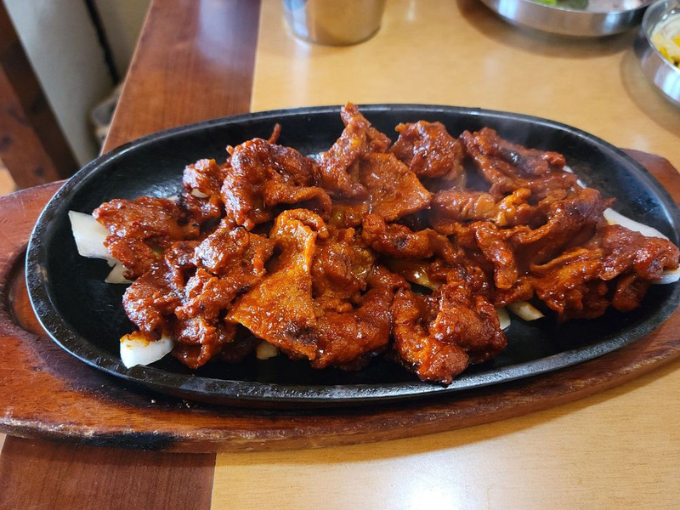The uniqueness of Korean food can be attributed to a combination of taste, visuals, and the cooking process.
Bold and Balanced Flavors: Korean cuisine is known for its distinct and bold flavors that balance the key elements of sweet, savory, spicy, and umami. The use of ingredients like garlic, ginger, sesame oil, and soy sauce contributes to a rich and diverse taste profile that sets Korean food apart.
Fermentation and Preservation: The Korean culinary tradition includes unique methods of food preservation and fermentation. Kimchi, a fermented vegetable dish usually made with napa cabbage and radishes, is a staple in Korean cuisine. This preservation technique not only imparts a distinctive flavor but also contributes to the health benefits associated with fermented foods.
Communal Dining and Sharing: Korean meals are often characterized by communal dining, where a variety of dishes are placed in the center of the table for everyone to share. This communal aspect enhances the social experience of eating and reinforces the idea of food as a way to bring people together.
Influence of Traditional Medicine: Traditional Korean food is often influenced by the principles of Korean traditional medicine, incorporating ingredients believed to have health benefits. This holistic approach to food is another dimension that adds uniqueness to Korean cuisine.
 NEW KOREAN RESTAURANTFavorite Korean restaurant in Marina, CA
NEW KOREAN RESTAURANTFavorite Korean restaurant in Marina, CA Various menuIf you're looking for a Korean Restaurant, this is a must try!!!
Various menuIf you're looking for a Korean Restaurant, this is a must try!!! THE Best Korean RestaurantThe best !! Absolutely !!
THE Best Korean RestaurantThe best !! Absolutely !!











